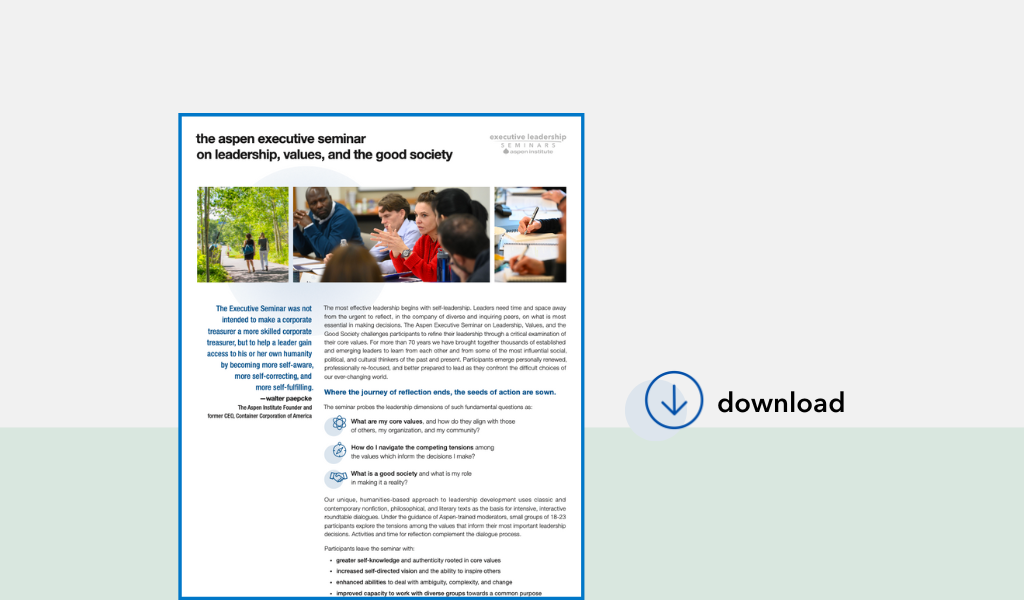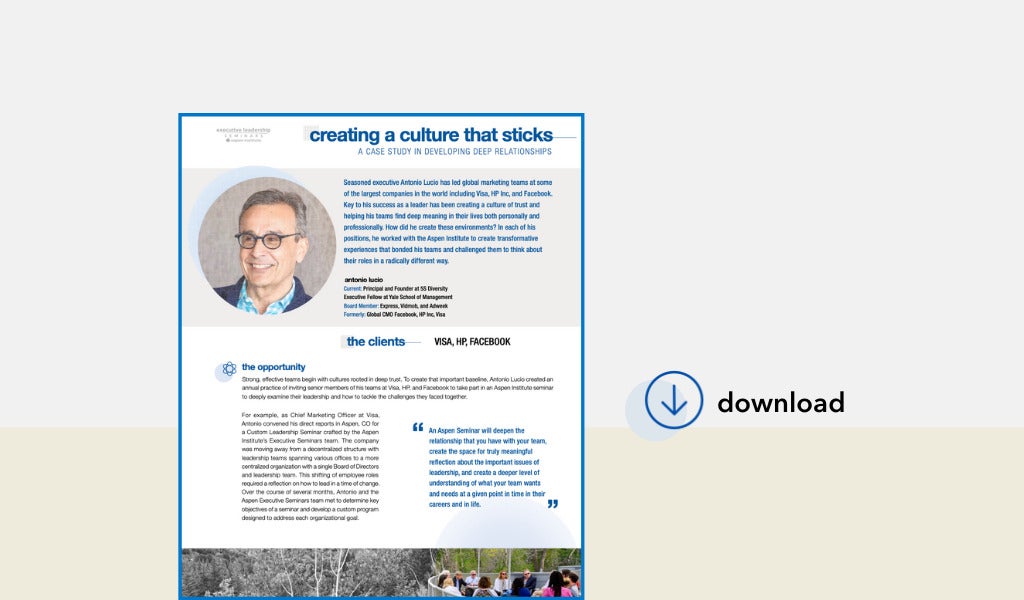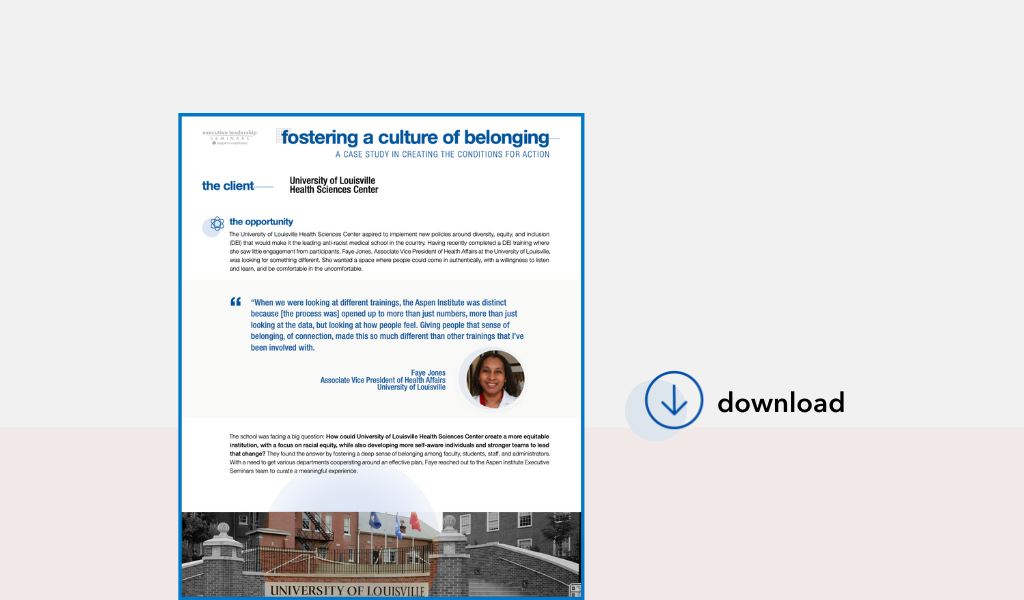Executive Leadership Seminars

Make leadership decisions from a place of humility, surety, and self-awareness.
Aspen Leadership Seminars challenge individuals to think more deeply, listen more attentively, and refine their ability to lead in an increasingly complex and conflicting world. Seminars participants engage in challenging conversations about enduring questions of ethical and effective leadership, gaining a greater capacity to lead with courage and conviction.

Aspen Leadership Seminars
“The seminar made the time to think about what our values are and how we want the world to be. Bringing those two things together is the true exhibition of leadership.”
–Elaine Martyn
Vice President & Managing Director, Fidelity Charitable

“As CEO, taking the time to sharpen the saw is critical. The Aspen Executive Seminar is the best whetstone out there.”
– Reed Hastings
Founder and CEO of Netflix






